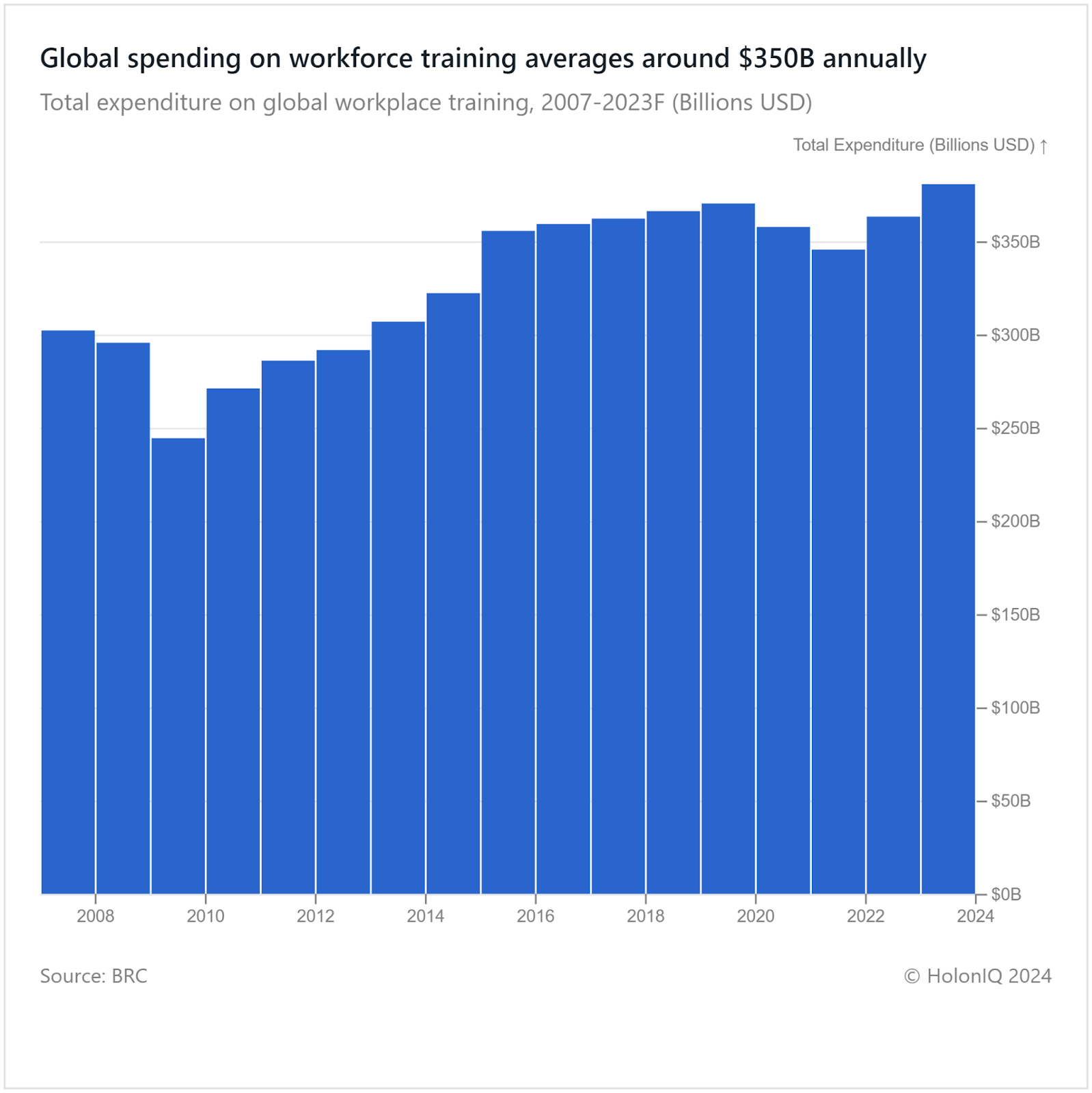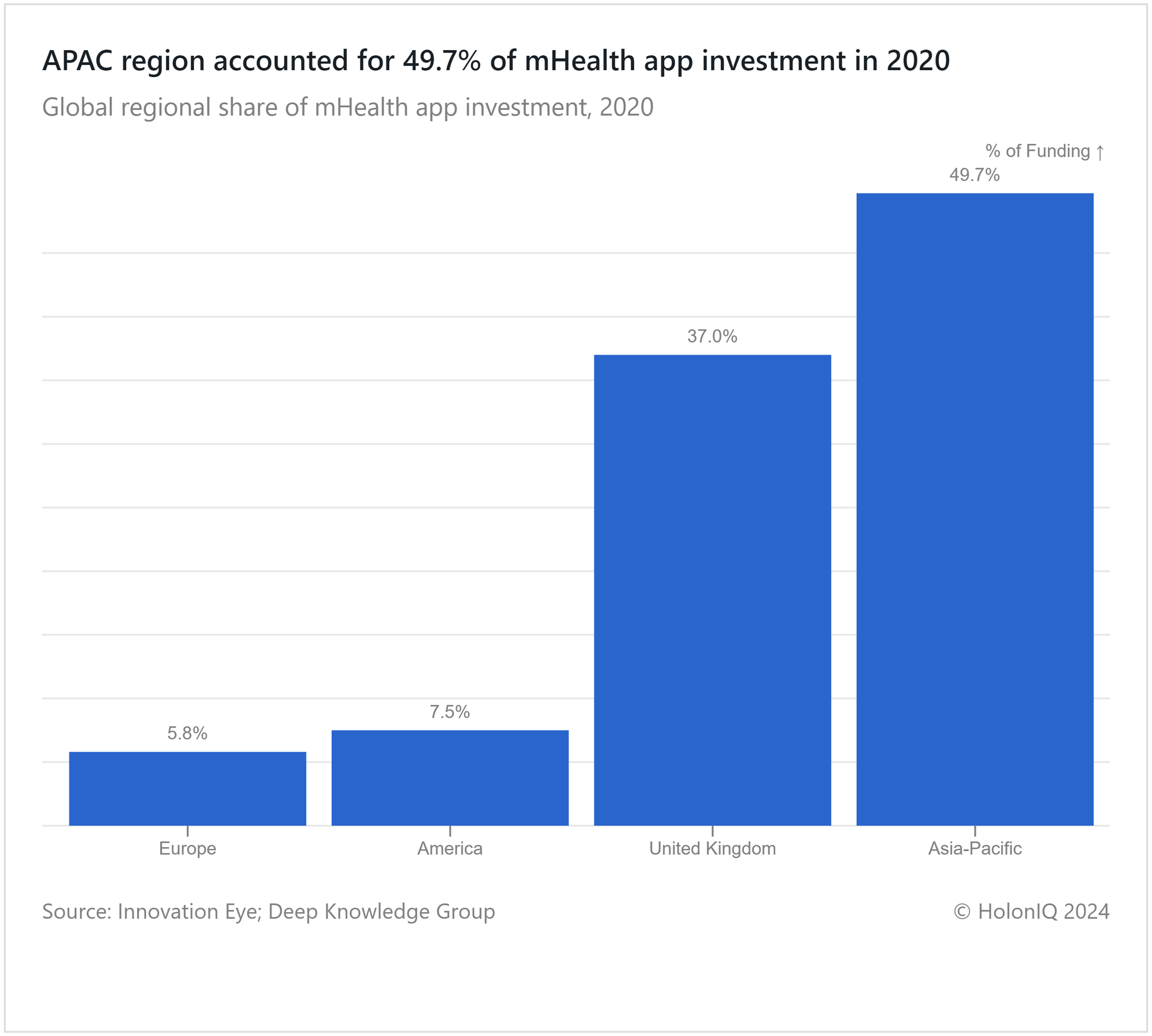🔬 246K Recycled Batteries. $380B Workforce Training. mHealth Investments.
Chart of the Day #89 looks at the Rise of Workforce Expenditure, Increase in Battery-Recycled Materials and mHealth App Investments.
Ayubowan 🙏
Ascend Elements and Call2Recycle are collaborating to provide a specialized electric vehicle battery management recycling service, with a goal to recycle over 300,000 battery packs by 2030. This service is designed to serve auto dealerships and repair centers looking to dispose of old batteries and procure recycled or refurbished battery components. Researchers at the University of Oklahoma are creating health interventions delivered via smartphones to make effective, evidence-based treatments for treating substance abuse.
Today's Topics
👷 Workforce Expenditure. Workforce training expenditure to reach $380B by 2023
🔋 Battery Recycling. 246K tons of battery-recycled materials by 2030
📱 Mobile Health. APAC region leads with 49.7% mHealth app investments
For unlimited access to over one million charts, request a demo.
👷 Workforce Training Expenditure to Reach $380B by 2023

Global workplace training investment has increased overall in the past two decades, rising from an average of $300 billion in 2007 to a projected $380 billion by 2023. This growth is driven by various factors, including government initiatives, population growth, and the increasing demand for soft skills. Companies' training budgets are influenced by industry specialization, training material and resources, trainer expertise, and company size. Certain core training programs, such as technical skills, soft skills, quality, compliance, and specialized programs tailored to company needs, form the foundation for a skilled workforce. The transition to remote work settings, a growing need for digital proficiency in the job market, and an increased focus on mental health and well-being have required a transformation in the nature of training programs to accommodate the evolving workforce.
🔋 246K Tons of Battery-Recycled Materials by 2030

The projected recovery of essential raw materials such as lithium carbonate, nickel, and cobalt from lithium-ion battery recycling is on an upward trajectory, projected to reach a combined 246K tons by 2030. The increasing demand for batteries, particularly lithium-ion batteries, driven by the adoption of electric vehicles is causing a rise in battery waste. Battery recycling is essential to prevent battery waste from adding to existing waste problems and to unlock the economic value of usable minerals and components within a used battery. The expansion of recycling is supported by the growth of battery drop-off centers, which provide convenient disposal options. Advancements in recycling technology are also enhancing efficiency and facilitating the recovery of valuable materials. This makes recycling economically viable for businesses, driving widespread adoption and sustainability efforts.
📱 APAC Region Leads With 49.7% mHealth App Investments

The Asia Pacific region and the United Kingdom accounted for over 86% of mHealth App investments in 2020. As mobile phone and internet penetration increase in Asia-Pacific, the mHealth business is quickly increasing, with a greater emphasis on aged care solutions. In the UK, the National Health Service (NHS) has actively promoted health resource access through mHealth apps since 2017, notably with the COVID symptom tracker. The pandemic played a primary role in the digitalization of the NHS and promoted the adoption of mobile health apps in the UK.
Major tech corporations have also helped to drive this growth with AI-powered apps such as MyFitnessPal, which tracks diet, and women's health apps, such as Flo, which tracks reproductive health. The United States, despite dominating the global mHealth market with many players operating in various areas, shows lower technological advancement and requires more federal support to increase investment into mHealth apps. Although EU governments prioritize public mHealth resources and take initiatives like the mHealth European Hub aimed at healthcare system integration, the data demonstrates that there is room for investment compared to other regions.
Like getting this newsletter? For unlimited access to over one million charts, request a demo.
Thank you for reading. Have a great week ahead!
Have some feedback or want to sponsor this newsletter? Let us know at hello@holoniq.com
